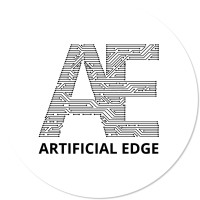- Overview
- Curriculum
- Pre Requisite
Course Description
The Applied Data Science course is a robust and comprehensive program tailored to immerse learners in the extensive field of data science. This course is crafted to not only impart the foundational principles and techniques of data science but also to delve into advanced methodologies and applications. It is structured to cater to the evolving demands of today’s industries, emphasizing practical knowledge and hands-on experience that align with business needs and technological advancements.
Learners embarking on this journey will explore how data science operates within various sectors, including healthcare, finance, retail, and more, showcasing the versatility and impact of data-driven decision-making. The curriculum is designed to unfold in a progressive manner, starting from the basics of data handling and statistical analysis, moving through machine learning models, and culminating in the exploration of cutting-edge technologies like artificial intelligence and deep learning.
A significant feature of this course is its focus on real-world applicability. Each module integrates case studies and projects that simulate industry challenges, allowing students to apply what they've learned in practical settings. This approach not only enhances learning outcomes but also prepares participants for the complexities and nuances of data science roles in the workforce.
Introduction to Data Science
- Overview of Data Science and its importance
- Understanding the Data Science lifecycle
- Essential tools and technologies in Data Science
Data Manipulation and Analysis
- Overview of Data Science and its importance
- Understanding the Data Science lifecycle
- Essential tools and technologies in Data Science
Statistics for Data Science
- Basics of probability and statistics
- Hypothesis testing and inferential statistics
- Statistical modeling and analysis
Machine Learning Fundamentals
- Supervised vs. Unsupervised Learning
- Regression, Classification, and Clustering techniques
- Model evaluation and tuning
Basic Programming Knowledge: Familiarity with any programming language, preferably Python or R, is highly recommended to follow the course material effectively.
Mathematics Foundation: A basic understanding of algebra, calculus, and statistics is essential to grasp the concepts presented in the course.
Analytical Skills: An analytical mindset and the ability to think critically will greatly benefit learners in understanding and applying data science techniques.





